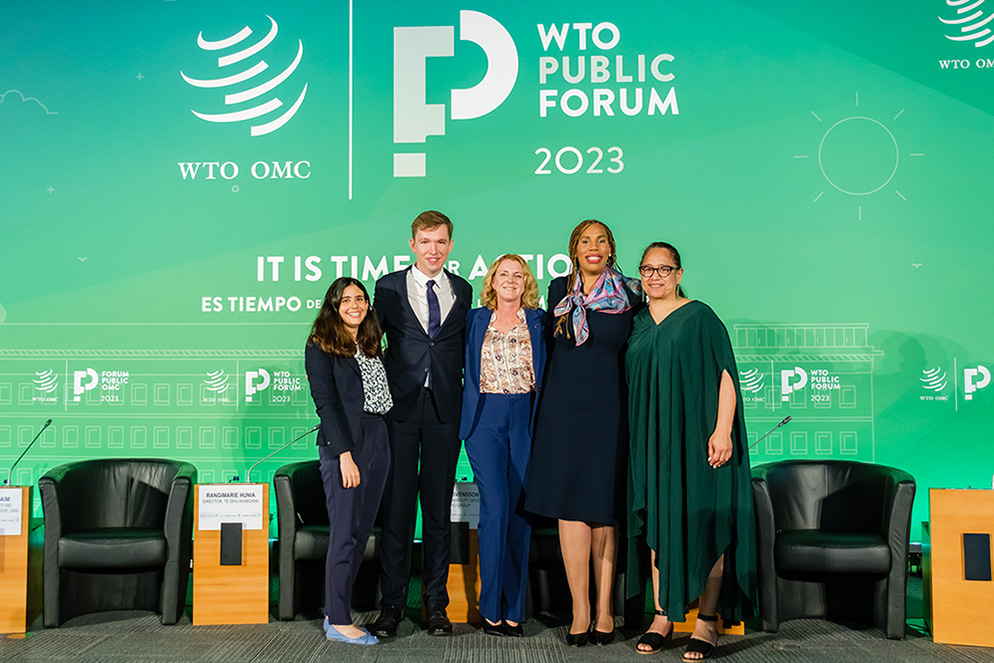WTO PUBLIC FORUM 2023
More
In a video message, Hindou Oumarou Ibrahim, President of the Association of Indigenous Women and People of Chad, highlighted the dangers facing indigenous people as a result of climate change. She urged the global community to pursue a new trade model not powered by fossil fuels and to invest more in the African continent to boost the growth of renewable energy.
“Only 2% of renewable energy investment goes to Africa. Climate change is a threat to our survival. It's time for all participants in climate change discussions to make a real move,” she said.
Margot Brown, Senior Vice President of Justice & Equity at the Environmental Defense Fund, shared concerns about the impact of climate change on indigenous people, underscoring the importance of ensuring that everyone has a seat at the table to make their voices heard in global discussions on climate action.
“People who are closest to the problem are closest to the solution,” she said, emphasizing the need for decision-makers to listen to the needs of marginalized people and to invest more in building capacity. She also stressed the importance of long-term thinking when introducing green technologies. We should consider the entire ecosystem and assess the impact of these technologies on seven generations to come, she added.
Rangimarie Hunia, the Chair of Te Ohu Kaimoana, an indigenous organisation seeking to protect Māori fishing interests, highlighted the importance of a holistic approach in addressing climate challenges. She called for indigenous solutions for indigenous people to be “woven into the WTO and trade policies that are desperately needed for the future”.
She also called for cooperation to ensure indigenous people are part of the climate solution. “Some 70% of our country is indigenous. And I'm confident that if we have the ability to incorporate new technologies, in partnership with the best minds on the planet, we would be able to illustrate how you can develop sustainable futures together,” she said.
Karin Svensson, Chief Sustainability Officer of the Volvo Group, laid out some measures taken by the group to go green, especially in transforming modes of transport — the main source of greenhouse gas emissions. She highlighted the importance of cooperation, in particular the First Mover Coalition established at the Glasgow Climate Change Conference (COP26), where the Volvo Group and other leading companies pledged to use their purchasing power to create markets for green technologies.
Volvo's commitment to “sustainable transportation is not something that we can do ourselves. It will require a full ecosystem that moves apace. So, we need to work not only with our own employees, customers, investors, suppliers, NGOs and other groups but also with our competitors on these challenges,” she said.
Vladislav Kaim, the UN Secretary-General's Youth Climate Advisor, said that the green transformation spearheaded by the UN remains on course, with concrete actions being taken to translate the vision into practice. “Now, we are at the stage where each one of us is finding our own path that works for us,” he said. He particularly highlighted the UN Green Jobs for Youth Pact launched at COP27 in Sharm el-Sheikh to help young people acquire new skills for a green future.
Looking ahead, he pointed out one potential goal to be set at COP28 in Dubai this November — tripling renewable energy production by 2030. To achieve this goal, he called on WTO members to step up efforts to reach an agreement on environmental goods and services that could cover many countries and indigenous communities.
Share
Share
Problems viewing this page? If so, please contact [email protected] giving details of the operating system and web browser you are using.
